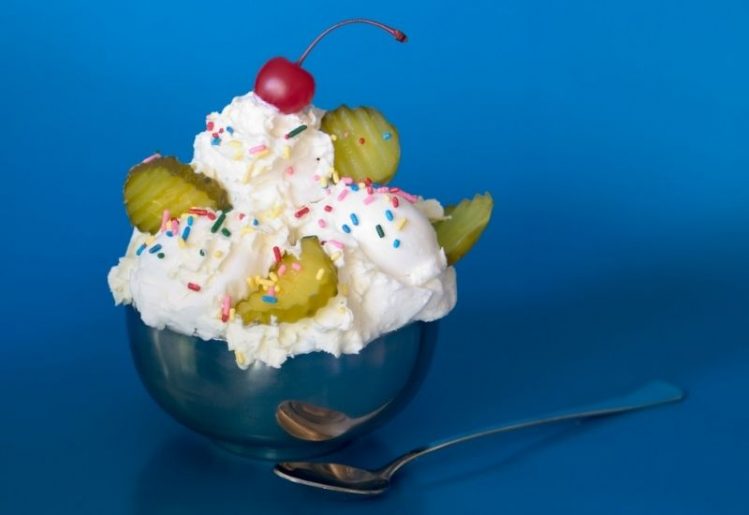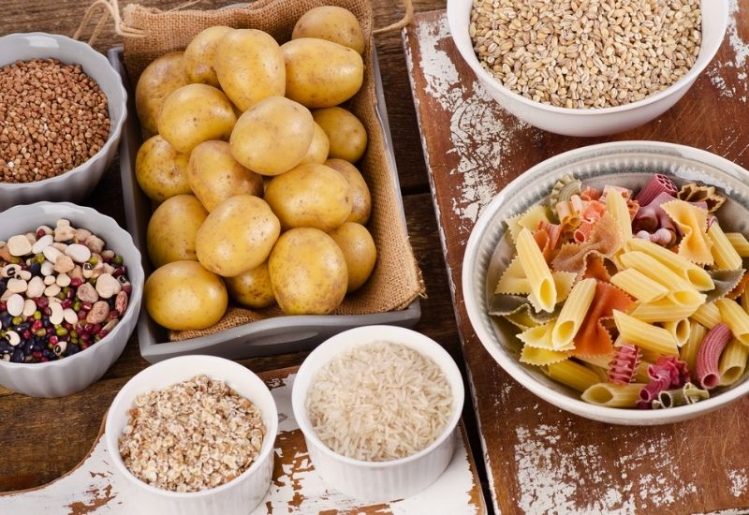Food Cravings and Nutrition: Craving Certain Foods May Point to Nutrient Deficiency
A food craving is a strong desire for a specific kind of food that can persist even when one may not even be hungry. Research indicates a possible link between food cravings and nutrition, suggesting that the body could utilize food cravings to make up for vital nutritional deficiencies.
Are Food Cravings and Nutrition Linked?
Food cravings usually originate in one of two different ways. A food craving that originates in the brain leads to a desire for a sugary or otherwise unhealthy or "off-limits" food. The second type of craving revolves around a type of food that may contain nutrients the body is lacking.
Food cravings can be complicated. An example of this is the common desire for chocolate. At first glance, it may seem this craving originates in the brain and is only a desire for a sweet treat. However, because chocolate contains the mineral magnesium, your craving may actually originate in a need for more of that nutritional compound. If this is the case, a healthier choice would be to satisfy your craving by eating nuts or seeds that are rich in magnesium.
 Since food cravings and nutrition seem to be linked in many cases, giving into a craving can help you meet a specific nutritional need. By indulging, you can make up for deficiencies that you may not realize exist.
Since food cravings and nutrition seem to be linked in many cases, giving into a craving can help you meet a specific nutritional need. By indulging, you can make up for deficiencies that you may not realize exist.
Another example of the possible link between food cravings and nutrition is instances in which people experience strong cravings for meat and cheese. As those foods are high in iron and calcium, the body may be using those cravings to help compensate for a deficiency in those nutrients.
Aside from cravings for regular foods, there is a condition called pica in which people experience a craving for a non-edible substance, such as soil or laundry detergent. While researchers still don't know what causes this condition, it is known that it mostly affects pregnant women and children. Scientists suspect that nutritional deficiencies do play a part in the cravings experienced by people with pica, but the exact reason for the bizarre nature of the cravings associated with pica hasn't been identified. Researchers are especially perplexed because, in studies where vitamin supplements ensured women experienced no deficiencies, their cravings still persisted.
Food Cravings and Nutrition: No Clear-Cut Answer
Food cravings can be tricky in that it is often necessary to determine whether the craving is the result of a genuine deficiency, or simply a desire for a particular taste sensation. Take salty foods for example: While some people do get cravings for salty foods because they have a sodium deficiency, it's much more common for people to crave salty foods because they just happen to like those types of snacks. The key? Try to determine why you're having the craving before giving in. Since too much sodium can increase your risks for cardiovascular problems, you should be wary about giving into this type of craving.
Cravings that aren't prompted by nutrient deficiencies are much more common, particularly among pregnant women. This is evident in the fact that pregnant women often crave foods with little to no nutritional value, for instance foods that are high in sugar, trans-fat, carbs and starch. In fact, cravings for foods high in sugar, trans-fat, carbs and starch are the most common types of cravings in general.
When cravings are prompted simply by an urge to eat unhealthy foods, switching to a healthier diet can help control those cravings. This was proven by one study that followed participants who were restricted to a low-carb diet. As the subjects adjusted to the low-carb diet, they experienced fewer food cravings.
Ensure You're Getting the Vitamins and Nutrients You Need
When you do have a craving for an unhealthy food, you can fulfill that craving with healthy alternatives. If you feel satisfied after eating a healthier food with similar nutrients, you'll know that the craving was brought on by a nutritional deficiency. If you still feel the craving after eating an alternative, this indicates an unhealthy craving that you should try to ignore in the future. Here are a few common cravings and their alternatives.
Sugar Cravings
When it comes to potentially unhealthy cravings, a yearning for sugary foods tops the list. If you often find yourself seeking out sweet treats, you could be deficient in one or more nutrients. A specific craving for chocolate can indicate that you are low on magnesium. A healthier way to get this vital mineral would be by consuming nuts, seeds and fruits like bananas, kiwi fruit, papaya, watermelon and apples. If you find yourself craving sweets in general, you may be low on chromium, carbon, phosphorus, sulfur or tryptophan. In this case, adding to your diet more veggies like cabbage, cauliflower and spinach, dairy products like eggs and cheese and lean meats like chicken will go a long way towards balancing out any deficiencies.
Meat Cravings
In addition to protein, a deficiency that vegans and vegetarians commonly face is that of iron. This is also a nutritional deficiency that women experience in their pre-menopausal ages. While there is non-heme iron in plant-based foods, your body has greater difficulty in processing this form of the nutrient. You can give your body more heme iron without deviating from your diet by eating legumes, beans, nuts and dried fruits.
Leafy Greens or Seafood Cravings
In addition to leafy greens and seafood, you may also crave cereal, eggs, poultry or dairy products. These cravings can arise as a result of a deficiency of B vitamins. If you’re binge eating as the result of stress or depression, it's especially likely that you're suffering from a deficiency of vitamins B1, B5, B6, B9 or B12. Some medications can result in B vitamin deficiencies, so you should consult your doctor if this is a concern.
Carbs
 If you're craving pasta, bread or other carbs, you likely have a nitrogen deficiency. To make up for that deficiency without eating unhealthy carbs, eat more red meat or fatty fish. Alternatively, you can meet this need by eating nuts, beans or chia seeds.
If you're craving pasta, bread or other carbs, you likely have a nitrogen deficiency. To make up for that deficiency without eating unhealthy carbs, eat more red meat or fatty fish. Alternatively, you can meet this need by eating nuts, beans or chia seeds.
Salty Cravings
While a sodium deficiency is rare, craving salty foods may also be the result of chloride or silicon deficiencies. In that case, you should eat more fatty fish and seeds. You can also get what you need from nuts -- especially cashews.
Avoid Deficiencies With a Comprehensive Supplement
If you don't think you can separate healthy cravings from unhealthy cravings, the best thing to do is to reduce the likelihood of experiencing them altogether. You can do this by taking a daily supplement that meets the specific dietary needs for your gender. Vitachron Male and Vitachron Female are examples of high-quality vitamins that can help you maintain proper nutrient levels for a healthy body and mind.





